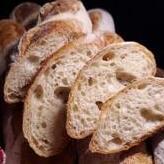-
Welcome to the eG Forums, a service of the eGullet Society for Culinary Arts & Letters. The Society is a 501(c)3 not-for-profit organization dedicated to the advancement of the culinary arts. These advertising-free forums are provided free of charge through donations from Society members. Anyone may read the forums, but to post you must create a free account.
How to reduce the sugar in cakes
-
Similar Content
-
- 8 replies
- 1,770 views
-
- 8 replies
- 1,770 views
-
- 141 replies
- 27,377 views
-
Cake pan sizes 1 2
By Malawry,
- 41 replies
- 23,727 views
-
- 40 replies
- 5,316 views
-
-
Recently Browsing 0 members
- No registered users viewing this page.



Recommended Posts